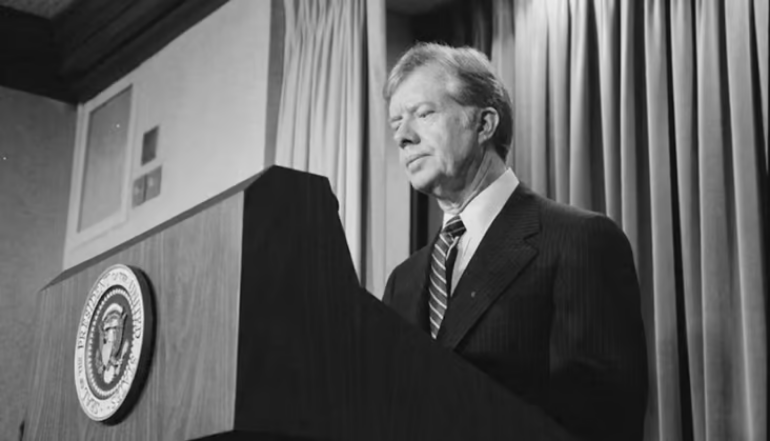
Our Correspondent | Africa Guardian
When reflecting on Jimmy Carter’s presidency and his impactful post-presidential years, achievements like the Camp David Accords, the Panama Canal Treaties, and the recognition of China often dominate discussions. However, Carter’s significant contributions to Africa, particularly during the Cold War, are often overlooked. His deep engagement in southern Africa, from apartheid-era South Africa to the birth of Zimbabwe, deserves renewed attention.
Tackling White Rule in Southern Africa
Carter took office in 1977, inheriting a global landscape where southern Africa had become a key Cold War battleground. Just a year earlier, Fidel Castro had deployed 36,000 Cuban troops to Angola to support the leftist MPLA against a South African invasion backed by the U.S. under Gerald Ford. Mozambique had shifted from Portuguese rule to governance by the left-leaning FRELIMO, and apartheid South Africa faced the prospect of being surrounded by hostile, black-ruled states.
This volatile backdrop placed Rhodesia (modern-day Zimbabwe) at the forefront of Carter’s agenda. The insurgency against Ian Smith’s white minority government was escalating, and Washington feared that continued conflict might lead to Cuban intervention, akin to Angola. The Carter administration prioritized finding a resolution, assembling a skilled team led by UN Ambassador Andrew Young and Secretary of State Cyrus Vance. Their efforts culminated in the Lancaster House negotiations and the 1980 elections that ushered in Zimbabwe’s independence under black majority rule.
Race and Responsibility
Carter’s interest in southern Africa was also deeply personal. Growing up in the segregated South, he witnessed firsthand the racial injustices of Jim Crow America. As his worldview evolved, Carter came to see parallels between the U.S. civil rights movement and Africa’s struggles against colonialism and apartheid.
In an interview, Carter revealed that his commitment to Rhodesia was partly rooted in a sense of guilt over America’s history of racial oppression. Influenced by Andrew Young, a close aide to Martin Luther King Jr., Carter reframed Cold War narratives, viewing leftist guerrillas like the Patriotic Front as freedom fighters rather than mere communist proxies. This nuanced perspective allowed Carter to center the Patriotic Front in negotiations, a rare approach for U.S. diplomacy during the era.
A Legacy Beyond Zimbabwe
Carter’s success in Zimbabwe not only marked a moral victory, enabling free elections and independence, but also preempted further Cuban military interventions in Africa. While his administration struggled with Cold War reflexes elsewhere—demanding Cuban troop withdrawals from Angola, for example—Carter’s policies in Zimbabwe stood out for their pragmatism and humanity.
Beyond his presidency, Carter’s dedication to Africa remained steadfast. Through the Carter Center, he spearheaded initiatives that nearly eradicated Guinea worm disease, saving millions from suffering. The Center’s election monitoring and conflict resolution efforts bolstered democracy across the continent.
A Lasting Impact
Jimmy Carter’s work in Africa, particularly his pivotal role in Zimbabwe’s independence, represents a significant yet underappreciated aspect of his legacy. His commitment to justice and diplomacy in the region underscores his broader vision for a more equitable world.
___
